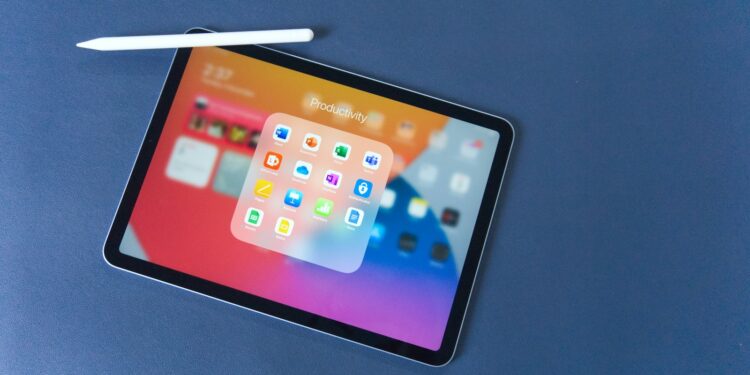Starting September 16, iPad apps in the EU can be sold not only through the Apple App Store but also through third-party app stores. This change is the result of the Digital Markets Act (DMA), a law aimed at promoting competition in digital markets. The move is part of a larger trend in the EU that has already enabled alternative app stores for iPhones.
Until now, Apple controlled the distribution of apps on iPads exclusively through its own App Store. For developers, this meant that they had to adhere to Apple's guidelines and fees if they wanted to distribute their apps. With the introduction of the Digital Markets Act, this is now changing. iPad users in the EU will soon also have the option of obtaining apps through alternative distribution channels.
background of the decision
The EU's Digital Markets Act (DMA) was designed to limit the market dominance of large technology companies. Apple was classified as a "gatekeeper" under this law. A gatekeeper is a company that could hinder competition through its market power. To promote competition, the EU has required Apple to allow the distribution of apps on iPhones and iPads through third-party app stores. This rule was initially implemented for iPhones, and from September 16 it will also be extended to iPads.
Impact on iPad users
For iPad users, this means the changethat from September 16th, they will no longer have to purchase apps exclusively from the Apple App Store. Instead, they will be able to use alternative app stores that may offer more choice and different pricing structures. This could give users more flexibility when purchasing apps. In addition, iPadOS apps will be able to use alternative browser engines. Until now, this was not allowed because Apple only allowed the use of its own WebKit engine. With this new regulation, various browser options could be available for iPads.
security aspects
Even if the distribution of apps via third-party stores is made possible, Apple remains responsible for the security testing of the apps. Every app sold via alternative stores must first be reviewed and notarized by Apple. This measure is intended to ensure that applications distributed in the alternative app stores also meet Apple's security standards.
Benefits for developers
Developers will benefit from this change as they will no longer be required to offer their apps exclusively through the Apple App Store. This could give them more freedom in pricing and marketing their apps. At the same time, lower commissions in alternative stores could lead to developers earning more revenue.
Impact on the App Market
Opening up the iPad app market to third-party stores could increase competition. More competition could lead to lower prices and a greater variety of apps. For users, this could mean more choice and potentially more innovative apps. Time will tell whether this will actually work out.
iPad apps via alternative stores: A turning point in the app market
The introduction of third-party app stores for iPads in the EU from September 16 marks a significant change in the app market. It gives users more options when purchasing apps while developers can use new distribution channels. However, Apple remains responsible for the security of the apps, which continues to play an important role. It remains to be seen what long-term impact this regulation will have on the iPad app market. (Photo by Unsplash / Sanjeev Mohindra)





